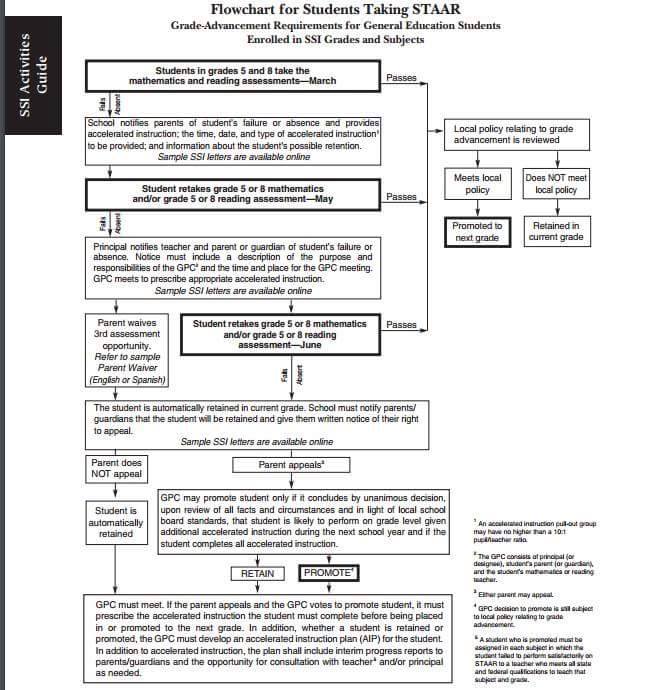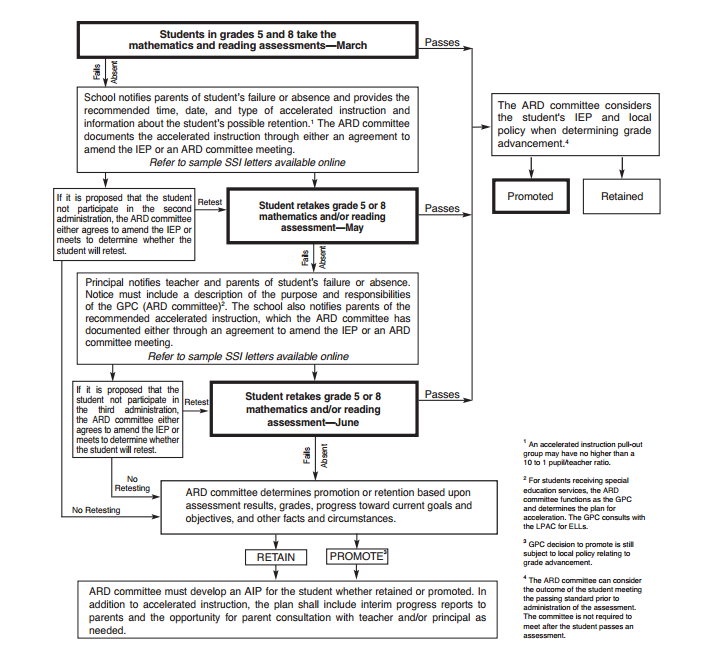HB 4545 Isn’t So Bad
Ok, I’m lying. It is a ridiculous and an incredibly stupid piece of legislation, thrown together and pushed down onto schools with no grassroots input or support by a bunch of knee jerk politicians in thrall to for profit tutoring, software, and publishing companies. It reinforces both the idea that STAAR is a valid measure of anything, and that raising performance on STAAR is of vital import to the state. It furthers the transfer of needed education dollars from the classroom to the hands of political cronies. Business as usual in #TxEd.
But that’s not what I want to talk about. I want to talk about whether – from the perspective of the parent – HB 4545 makes things better or worse, and more specifically whether it should have any impact at all on the decision to opt out of assessment. I am going to say right up front, it is a net positive for parents and should make the decision to opt out easier, rather than harder. How do I come to this conclusion?
1 – HB 4545 Eliminates STAAR Based Promotion and Retention
The greatest deterrent that schools ever held over Opt Out parents was the threat of retention in 5th and 8th grade. Of course, it was really just a threat as we never saw a single Opt Out student retained. In fact, the very few instances of a retention based on STAAR that we were familiar with involved students who actually attempted but failed the assessment. For students that were absent or refused, we never saw a single student retained. But now, even that threat is gone, eliminated by HB 4545. Now some schools are pointing to TEA and Education code guidance the STAAR results must be “considered” as part of promotion, and that language does exist, but we have to dwell in reality. When STAAR WAS a promotion requirement, nobody with passing grades was being retained over STAAR. Now that it is no longer a requirement, that simply isn’t going to change. All districts have a promotion policy, and as the policies are amended to reflect HB 4545, I do not expect to see STAAR mentioned explicitly in any of them. Moreover, if you do not take it, or refuse it without answering, there really is no data to “consider.” This is another reason we do not recommend choosing all one answer or random bubbling. Those tactics do create data. Particularly in random bubbling, it will be exceedingly difficult to disavow your data.
2 – The Accelerated Instruction (AI/Tutoring) Has Always Existed
Amazingly, as HB 4545 came into play, I have seen parents come into an anti-STAAR group and bemoan how much they would like to opt out, but they just cannot fathom their child having 30, 60 or even 90 hours of tutoring to complete. But this complaint just shows how easily swayed parents are by the rhetoric of these schools. The schools warn “HB 4545 TUTORING!” as if the sky is falling, but any parent who has opted out in the past will tell you that the schools have always tried to impose accelerated instruction on Opt Out kids and STAAR failers alike. And they have done it in the summer. And they have done it in the school year. They’ve done it outside school hours. And yes, it was and always has been “subject to compulsory attendance.” There is nothing new here from HB 4545. The only thing new here is that HB 4545 has put a number of hours on it. Now, in a sense that is a step backwards, because the previous statute did not specify an amount of AI to be completed. The SSI manual confirmed this and said the school could tailor it to the needs of the students. Many parents were successful in arguing that they could meet the requirements with a 15-minute online worksheet. So, in a sense the 30-hour mandate is a step backward. But in reality, it is MUCH BETTER than what students often faced. Especially as we hit middle school and high school, the standard approach of the schools was to conduct AI by taking away electives from kids and sticking them into full year, full class period STAAR prep “classes”. The state even tacitly encouraged this by providing a pot of money for these AI classes that schools could use to cover portions of their teacher salaries. Consultants would advise districts on how to maximize their funds with these STAAR prep classes, so you can imagine schools were reluctant to let kids escape them. So rather the 30 hours of AI per subject, students might see 175 hours per subject, but it was hidden as a “class.” What we do know is that almost every opt out was followed by a fight over preserving electives and declining AI. So, while HB 4545 has put numbers to this tutoring requirement, it really has not added anything new. And I think most students who were stuck in a STAAR prep class would have happily traded that for 30 hours of tutoring.
3 – It is Easier to Decline the AI
So, having accepted that one concrete downside of HB 4545 is a set number of hours for AI, why does this not bother me more? Simple. The TEA has given us a gift. Now, we have always held that opt out applies to accelerated instruction. We have authored multiple articles and form letters for this purpose. But this year, the TEA actually examined the issue. More importantly, they did so in a way that makes clearer what they believe. TEA guidance is always very murky and equivocal. When they first put out their HB 4545 FAQ, they already anticipated our opt out approach and advised that “NO” a parent cannot opt out of HB 45454 AI. But then something happened. They went back and rethought that answer. And while their analysis of the question is not as sharp as it should be, it does recognize that HB 4545 AI falls into the same category as almost every other opt out situation – no language that removes it from opt out, and no specific opt out written into the bill. What they do not say is that when this is the case, we apply the general opt out rule of 26.010 — which means you can definitely opt out. And the TEA communicates this in two ways: first, the FAQ no longer says “NO.” Granted it is about three paragraphs of equivocation, but at the end it notes that schools can accommodate these parental decisions via INFORMAL process. This means you do not have to file an appeal or a grievance. There is not a hearing process. You can simply give your notice; the school can remove the child from AI, noting your opt out, and all parties will have followed the law. We never had this with AI under the Student Success Initiative. So, while the length of AI floor is higher under HB 4545, the ability to remove your student from it is now affirmed by the TEA.
4 – Students Are Not Subject to Losing Electives
Finally, one of the true fears that parents used to have over opting out was that as a result of AI, their student would be denied electives. If the kid was an artist, athlete or just in need of an enriching curriculum, opting out threatened to interfere with those objectives. Now most parents could usually negotiate some kind of compromise; but not always. We dealt with some stubborn and punitive districts. Thankfully, they were the exception and not the rule. But there was almost always a process and a negotiation. Under HB 4545, a school is forbidden to remove a student from foundation or enrichment curriculum or PE to administer tutoring. So, loss of electives should no longer be an issue.
As I look at HB 4545 from a parent’s perspective, while I find it annoying, I also find that on balance the situation is far, far better for parents. Worse for schools to be sure; worse for teachers also. But I am here from the parent perspective. Does HB 4545 make it harder or easier to fight STAAR by opting out and refusing to be part of the data collection for the TEA? It clearly makes it easier. It clearly lowers the stakes. And this is true from both a theoretical and practical standpoint. Any parent who raises HB 4545 as a reason not to opt out has not studied either the history of AI or the full scope of HB 4545 and its implementation. As opt out parents, HB 4545 is a mere annoyance at worst, and a help at best.


